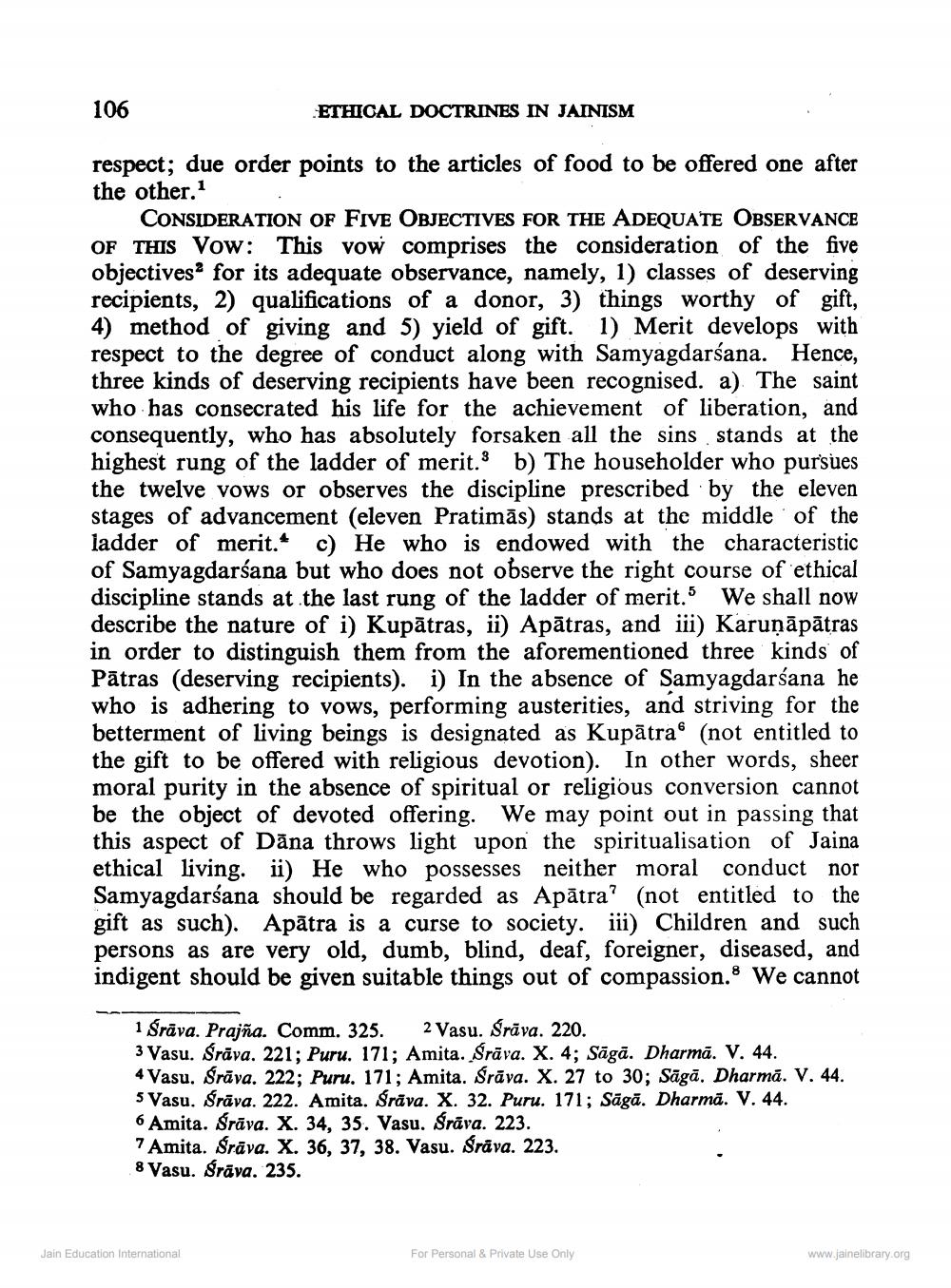________________
106
ETHICAL DOCTRINES IN JAINISM
respect; due order points to the articles of food to be offered one after the other.1
CONSIDERATION OF FIVE OBJECTIVES FOR THE ADEQUATE OBSERVANCE OF THIS Vow: This vow comprises the consideration of the five objectives for its adequate observance, namely, 1) classes of deserving recipients, 2) qualifications of a donor, 3) things worthy of gift, 4) method of giving and 5) yield of gift. 1) Merit develops with respect to the degree of conduct along with Samyagdarśana. Hence, three kinds of deserving recipients have been recognised. a) The saint who has consecrated his life for the achievement of liberation, and consequently, who has absolutely forsaken all the sins stands at the highest rung of the ladder of merit.3 b) The householder who pursues the twelve vows or observes the discipline prescribed by the eleven stages of advancement (eleven Pratimās) stands at the middle of the ladder of merit. c) He who is endowed with the characteristic of Samyagdarśana but who does not observe the right course of ethical discipline stands at the last rung of the ladder of merit. We shall now describe the nature of i) Kupātras, ii) Apātras, and iii) Karuņāpātras in order to distinguish them from the aforementioned three kinds of Pātras (deserving recipients). i) In the absence of Samyagdarśana he who is adhering to vows, performing austerities, and striving for the betterment of living beings is designated as Kupātra (not entitled to the gift to be offered with religious devotion). In other words, sheer moral purity in the absence of spiritual or religious conversion cannot be the object of devoted offering. We may point out in passing that this aspect of Dāna throws light upon the spiritualisation of Jaina ethical living. ii) He who possesses neither moral conduct nor Samyagdarśana should be regarded as Apātra? (not entitled to the gift as such). Apātra is a curse to society. iii) Children and such persons as are very old, dumb, blind, deaf, foreigner, diseased, and indigent should be given suitable things out of compassion. We cannot
1 Śrāva. Prajña. Comm. 325. 2 Vasu. Srāva. 220. 3 Vasu. Srāva. 221; Puru. 171; Amita. Srāva. X. 4; Sāgā. Dharmā. V. 44. 4 Vasu. Srāva. 222; Puru. 171; Amita. Srāva. X. 27 to 30; Sāgā. Dharmā. V. 44. 5 Vasu. Śrāva. 222. Amita. Sráva. X. 32. Puru. 171; Sāgā. Dharmā. V. 44. 6 Amita. Śrāva. X. 34, 35. Vasu. Śrāva. 223. 7 Amita. Srāva. X. 36, 37, 38. Vasu. Srava. 223. 8 Vasu. Śrāva. 235.
Jain Education International
For Personal & Private Use Only
www.jainelibrary.org




